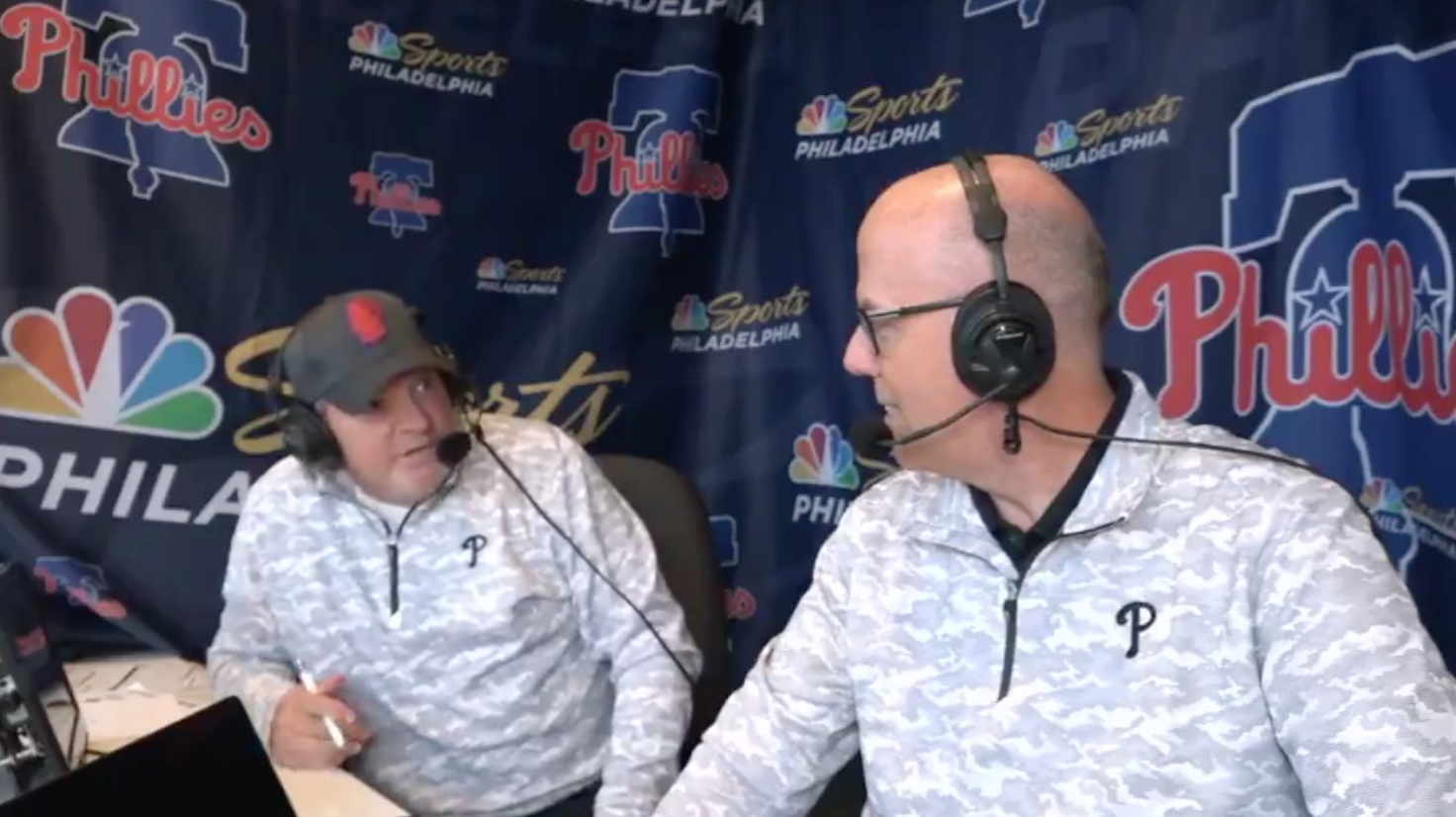Every March, covering basketball becomes a full-court press for Allie LaForce. The sideline reporter switches mid-season from the NBA on TNT to the NCAA Tournament for TNT Sports. With the Field of 68 beginning play next week, we thought it would be a great time to catch up with LaForce.
We spoke to her about the challenges of her job and other topics.
Note: This interview has been edited and condensed for length and clarity.
Awful Announcing: How much cramming can you get done beforehand?
“The week before the conference tournaments I start watching and cramming. I’m a visual learner, so I like watching the upsets, the celebrations, and the hoisting of the trophies of the conference tournaments. I can remember a coach or a player’s face with how they reacted in that moment. And when I see them in person, have that memory come back to me so clearly that it helps me relate what that last chapter of their season was like for them.”
Is there a March Madness memory that sticks out to you?
“We were in Syracuse, and Michigan State beat Louisville (in 2015). I was on the court. All the fans started storming the court. Tom Izzo’s wife ran down. She was crying and jumped into his arms. The players were in tears, sweating and hugging each other. I just remember it felt so pure, so authentic. There were families involved and players involved. There were a lot of three-year guys, not just one-and-dones. It was a packed stadium, which was nice. The energy was so powerful and created such vivid memories for me.”
With the NBA and NCAA, how often are you on the road?
“My husband (relief pitcher Joe Smith) played baseball for 16 years and just retired. So, if I was off for two days, but he wasn’t in our hometown, I would fly to wherever he was for two days and then go back on the road. I’d be gone for 14 days in a row and then go home sometimes just to repack my bag. We had a baby and took him everywhere. Now, we’re settled in Ohio more consistently. But my husband took a job as a special assistant for the Astros. We were in Florida last week (for spring training). But if you’re talking about work and personal, I’d say 85 percent of the year I’m in a hotel or on a plane.”
Sounds like you have a lot of frequent-flyer miles. What are the best perks?
“Oh, my God. I have a million miles on three airlines. It’s true, no exaggeration. Probably the overweight luggage for no cost. The automatic upgrade. If I book an economy ticket, I get upgraded within three minutes. And then being able to share companion pass upgrades. So, if my husband, my mom, or my aunt is traveling with me, I can get them whatever the upgrade is, which is so nice.”
What do most viewers not understand about being a sideline reporter?
“Number one, our producers do not tell us what to say or what questions to ask. Let’s just be clear about that because I get asked that about twice a game. And then there’s been a lot of social media drama about that topic. I always laugh when people ask me that because I get confused. In my mind, I was hired to ask intelligent, proper questions that portray the storyline of the game and bring out the best moment out of the person I’m interviewing for the fans to have the best context of what they’re watching. So, if I’m not coming up with my own questions, then what was I hired to do?
“Number two, I think there’s a lot of subjectiveness and feel for the moment. It’s not written in stone. It’s not pre-written. It can’t be. You have to be flexible. You have to have the ability to be perceptive and understand sensitivities and emotions, but also while keeping your journalistic integrity and understanding what needs to be asked and then what’s appropriate based on the circumstances. I think that isn’t an easy balance to teach. Some of it is learned and gets better with experience.”
Why did you and your husband start HelpCureHD, a charity focused on Huntington’s disease?
“My husband’s mom died of Huntington’s disease. It’s a neurological disease similar to if you combine Alzheimer’s and Parkinson’s. They call it the devil’s disease. It’s like a demon takes over your body and your brain, and you die at a young age. Joe’s mom got symptoms in her early 40s. She passed away at 62. The most devastating part is watching a loved one go through that but then also knowing that every one of their children has a 50 percent chance of having it.
“Before we got married, (Smith) asked if I was OK marrying someone that had a 50 percent chance of knowing when they were going to die. Of course, I was OK with it. I was in love with him and would support him through anything. Then we talked about having children. If Joe has it, he would pass along that 50 percent chance to our child. We decided to go through in vitro fertilization or IVF.”
How difficult was that process?
“I did three egg retrievals and an embryo transfer. I miscarried once, and now we have beautiful Jacob. I have more embryos left. But we were devastated and shocked by how expensive it was. Knowing that most people we knew couldn’t afford it if they wanted to. We did it because through the process, they genetically test the embryos. So, they tested ours for Huntington’s disease, and we implanted the ones that tested negative. So our children and our family will never have to go through this disease ever again.”
What is the cost?
“We’re $80,000 into it. But it’s, on average, about $30,000 per family to go through a round of it and transfer a baby. But that’s assuming it works, and you don’t have to go through multiple rounds. We decided that because the cost is so devastating we would raise money for families to be able to go through this if they wanted to eliminate this disease from their family line forever.
“They’re so far away from a cure. There’s no medicine, and there’s nothing to treat it. To this day, we have funded 136 families to go through IVF, which we’re so excited about.”
How’s your son doing?
“He’s great! He’s 16 months. He’s walking. He plays sports. He’s very healthy and is a good eater and sleeper. We hit the jackpot. His name is Jacob. Being a sports person, you’ll like this. My husband and I met at Jacobs Field in Cleveland. So, we call him ‘The Jake.'”
To donate to HelpCureHD, please visit here.







